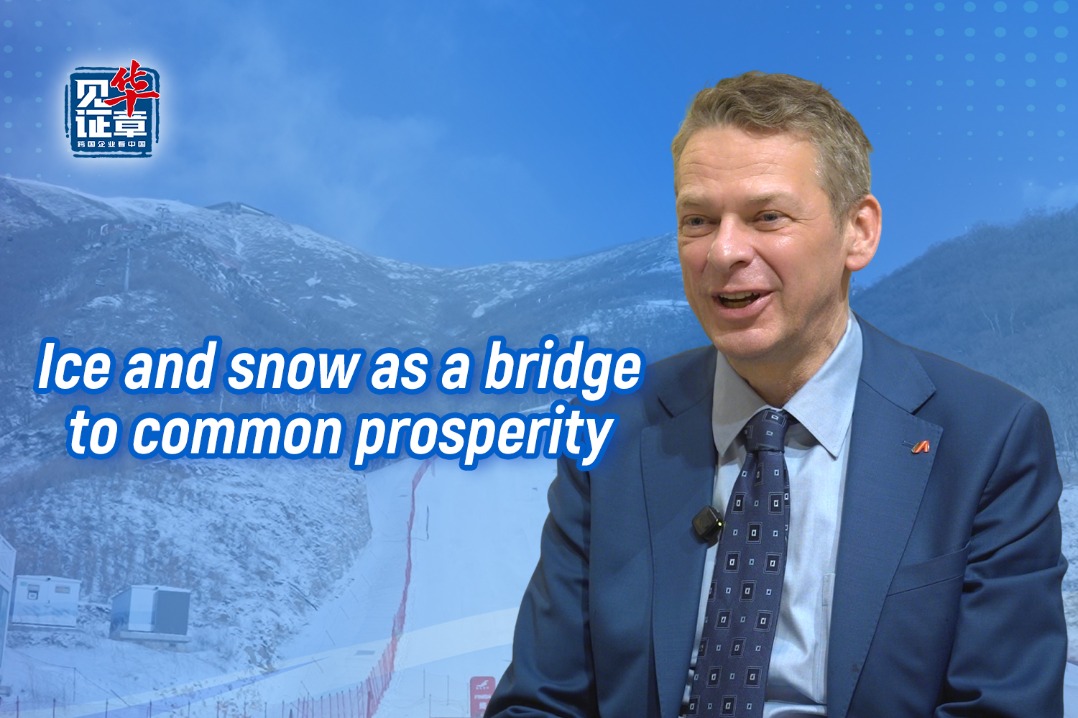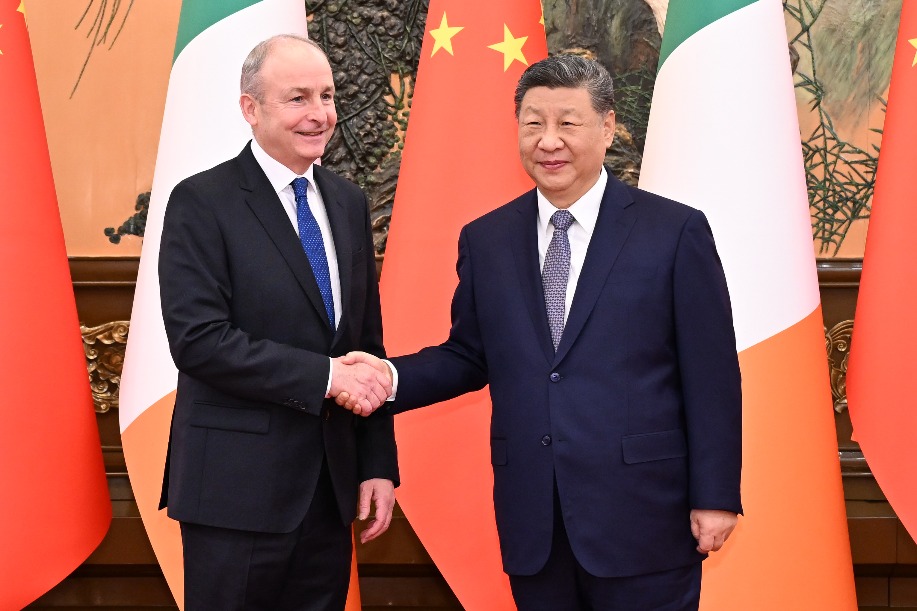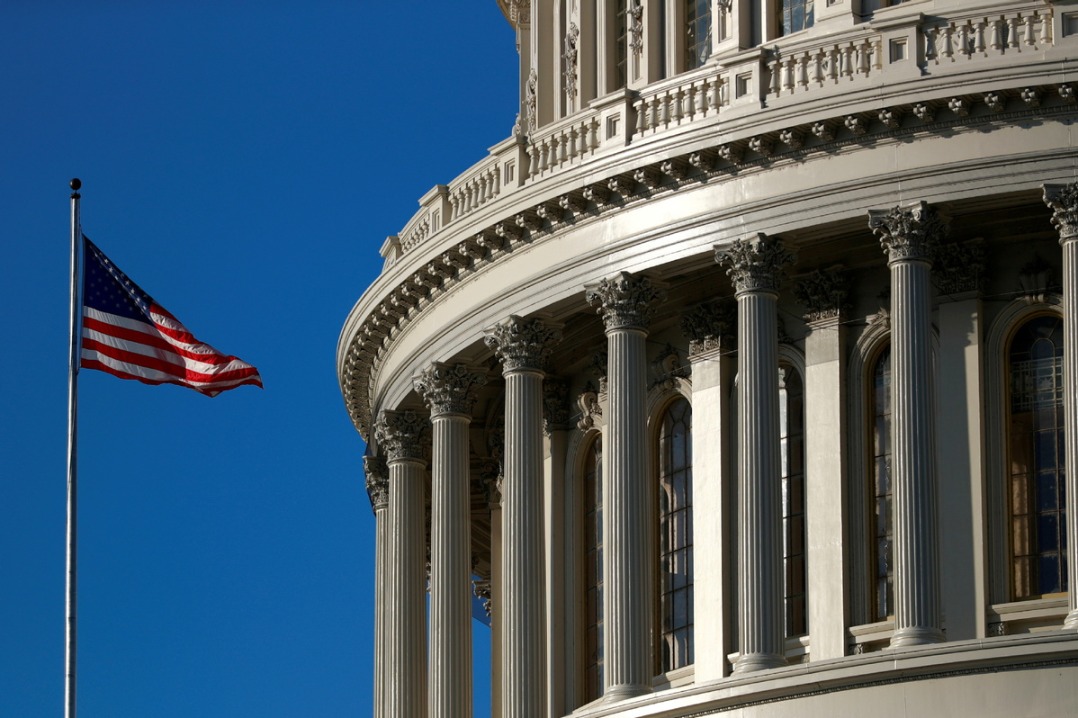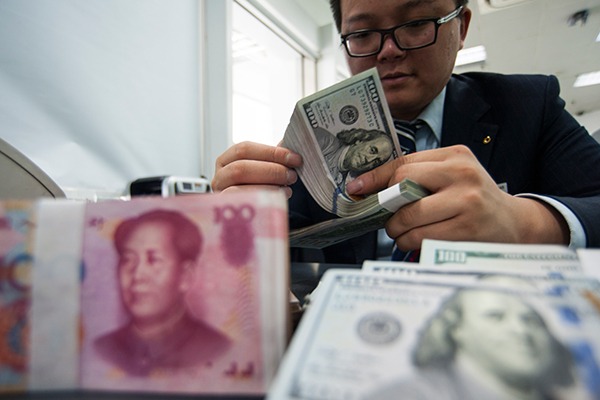US again puts climate fight at a crossroads

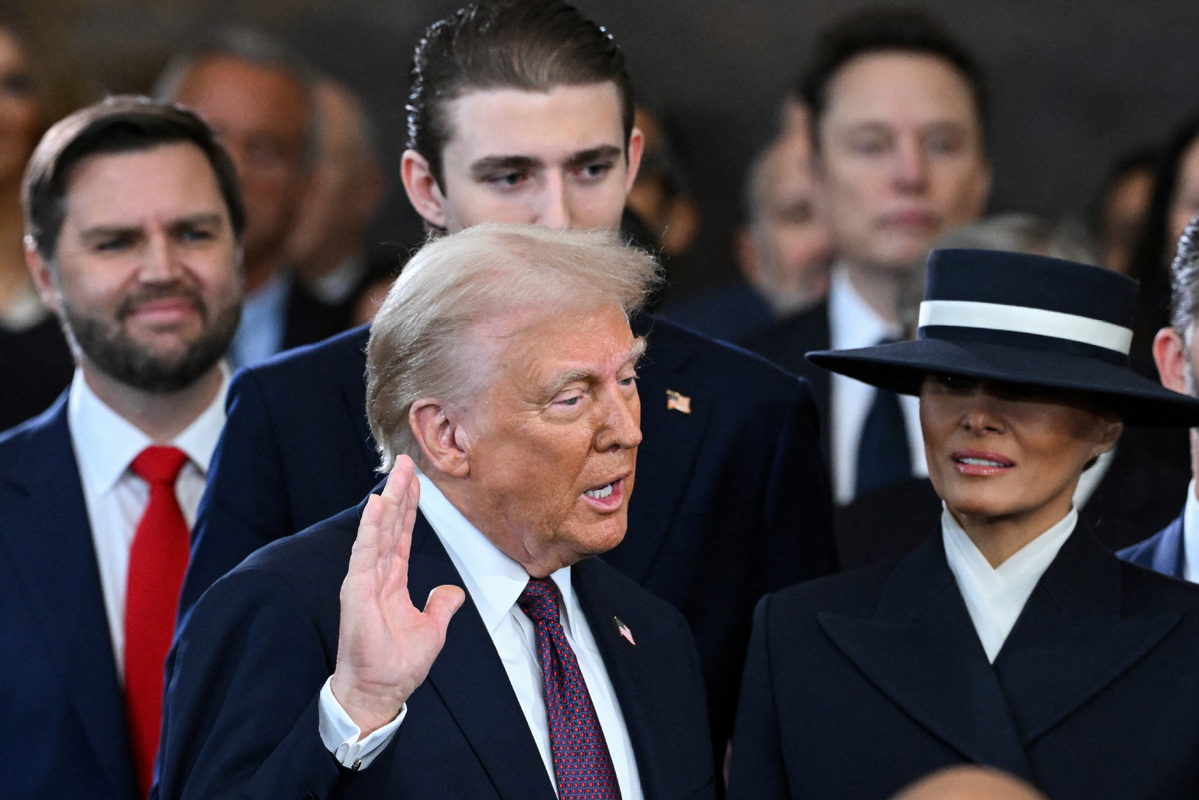
Donald Trump is sworn in as the 47th US President in the US Capitol Rotunda in Washington, DC, on Jan 20, 2025. [Photo/Agencies]
US President Donald Trump announced the US' withdrawal from the landmark Paris climate agreement just hours after being sworn in for a second term. This decision on Monday, following a similar one in 2017, poses significant challenges to global efforts to combat climate change.
The Paris Agreement aims to limit long-term global warming to 1.5 degrees Celsius above pre-industrial levels or, alternatively, to keep temperatures well below 2 degrees Celsius above pre-industrial levels. Trump's stance, criticizing clean energy as expensive and wasteful, signifies a stark contrast to that of his predecessor Joe Biden.
Following Biden's victory in the 2020 election, the US had rejoined the Paris Agreement in 2021, overturning Trump's 2017 withdrawal and restoring the US' responsible image on climate issues. The US Climate Alliance launched in June 2017, now comprising 24 governors, had earlier pledged to continue advancing action to counter climate change.
The alliance represents approximately 60 percent of the US economy and 55 percent of the US population. The governors in the alliance have pledged to collectively reduce net greenhouse gas emissions, and collectively achieve overall net-zero greenhouse gas emissions as soon as practicable, and no later than 2050.
Trump's potential dismantling of federal climate actions through executive orders, in order to promote energy independence and economic growth, could pose challenges to federal leadership on climate policy.
Climate policy is now predominantly in the hands of state and local governments, which have taken ambitious steps during both Trump's first term and Biden's term. Despite this, Trump's potential new policies might disrupt these efforts, exacerbating federal-local tensions on climate policy.
Europe is already seeing a declining public focus on climate change, as the EU grapples with rising right-wing populism, potential trade conflicts with the US and reduced support for Ukraine. The EU's nuanced stance on fossil fuels and renewable energy reflects shifting priorities toward economic and livelihood concerns because of the Russia-Ukraine conflict.
In his second term, Trump's priorities include revitalizing the economy and his "Make America Great Again" slogan. To fulfill campaign promises and support his oil industry backers, Trump is likely to significantly alter US climate and environmental policies, including expanding oil and gas drilling. His nomination of fossil fuel executive Chris Wright as energy secretary underscores this intent.
Trump aims to boost oil production through aggressive drilling policies, claiming the US has the largest oil reserves. He plans to cut energy costs by 50 percent, believing this will benefit the American people. His reversal of Biden's climate policies, including potential changes to the policies surrounding electric vehicles to revive the domestic auto industry, could have far-reaching implications.
The Intergovernmental Panel on Climate Change warns that immediate reduction in fossil fuel use is crucial to avoid surpassing dangerous temperature thresholds within the next decade, leading to catastrophic global warming. The impacts of climate change disproportionately affect the younger generation and low-income families, influencing career choices and imposing burdens on households.
The future of US climate policy remains uncertain, with potential shifts under a second Trump administration posing risks to global climate efforts. As the world observes the US' role in addressing this pressing challenge, it remains a critical issue for policymakers and societies globally.
The author is an associate researcher at the Institute of American Studies, Chinese Academy of Social Sciences.
The views expressed do not necessarily reflect those of China Daily.
If you have a specific expertise, or would like to share your thought about our stories, then send us your writings at opinion@chinadaily.com.cn, and comment@chinadaily.com.cn.
















